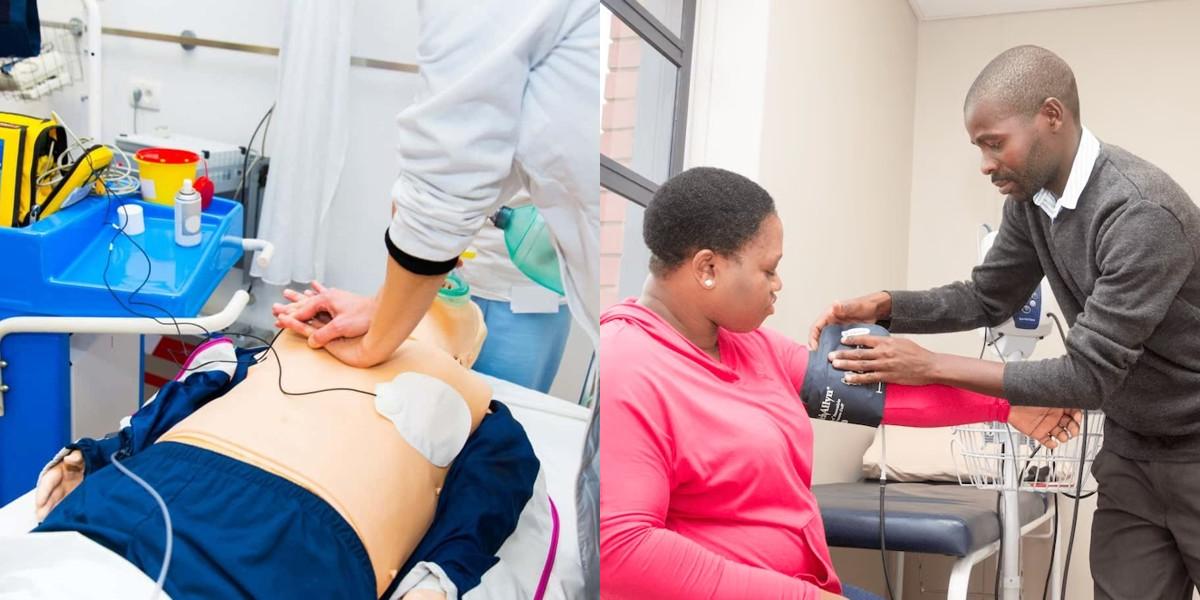ACLS vs Medical Assistant

Key Points:
- ACLS professionals typically earn higher salaries, but Medical Assistants have wider employment opportunities across healthcare settings.
- ACLS training is short, intensive, and requires regular recertification, while Medical Assistant training spans several months to a year and offers flexible learning options.
- ACLS certification is more expensive due to its specialized, hands-on nature, while Medical Assistant programs are generally more affordable and comprehensive.
Discover the differences between ACLS providers and Medical Assistants, from job roles and training to career outlook. Find the healthcare path that aligns with your goals.
ACLS vs Medical Assistant: Job Descriptions
ACLS Provider:
- Perform CPR, defibrillation, intubation, and advanced cardiac life support in emergencies.
- Interpret EKGs, administer emergency medications, and manage patient airways.
- Work closely with a healthcare team to stabilize critically ill patients.
Medical Assistant:
- Record patient histories, take vital signs, assist with minor procedures, and perform basic lab tests.
- Schedule appointments, manage patient records, and handle billing.
- Provide patient education and assist physicians in delivering care.
Education and Training Pathways
ACLS Certification:
- Prerequisites: Basic Life Support (BLS) certification and prior healthcare experience.
- Duration: Typically a two-day program with classroom instruction and hands-on training.
- Certification: Requires an exam and periodic recertification to ensure competency.
Medical Assistant Program:
- Prerequisites: High school diploma or equivalent.
- Duration: One to two years, with programs ranging from certificate to associate degree levels.
- Training: Includes coursework in anatomy, medical terminology, pharmacology, and externship experiences.
- Certification: Optional, but certifications like Certified Medical Assistant (CMA) are favored by employers.
Career Outlook and Salary Comparison
ACLS Provider
- Outlook: High demand for those with ACLS skills as heart-related emergencies rise, especially in critical care.
- Salary: Median annual wage for cardiovascular technologists and technicians was $53,180 in 2023 (BLS).
Medical Assistant
- Outlook: Strong growth as healthcare facilities seek more support staff to meet patient demand.
- Salary: Median annual wage was $42,000 in 2023 (BLS), with higher pay for those with certifications and specialized skills.
Final Thoughts
Choosing between becoming an ACLS provider or a Medical Assistant depends on your career goals and interests. If you’re drawn to high-stakes emergency care, ACLS may be ideal. For those interested in diverse patient interactions and adaptable healthcare roles, Medical Assisting offers rewarding opportunities. Both careers provide meaningful ways to support patient care and contribute to the healthcare field.
Explore Dreambound Programs for ACLS and Medical Assistant: Dreambound offers accessible programs across locations. To learn more, visit:
Dreambound is here to support you on your healthcare journey, helping you make an informed choice for your future.

Pia Yapjoco is part of the school growth and sales team at Dreambound. She helps facilitate school partnerships that expand educational opportunities for aspiring students in allied health and other trades. Beyond work, she curates her pup's Instagram, hunts for hidden coffee gems, and escapes into cozy gaming.





